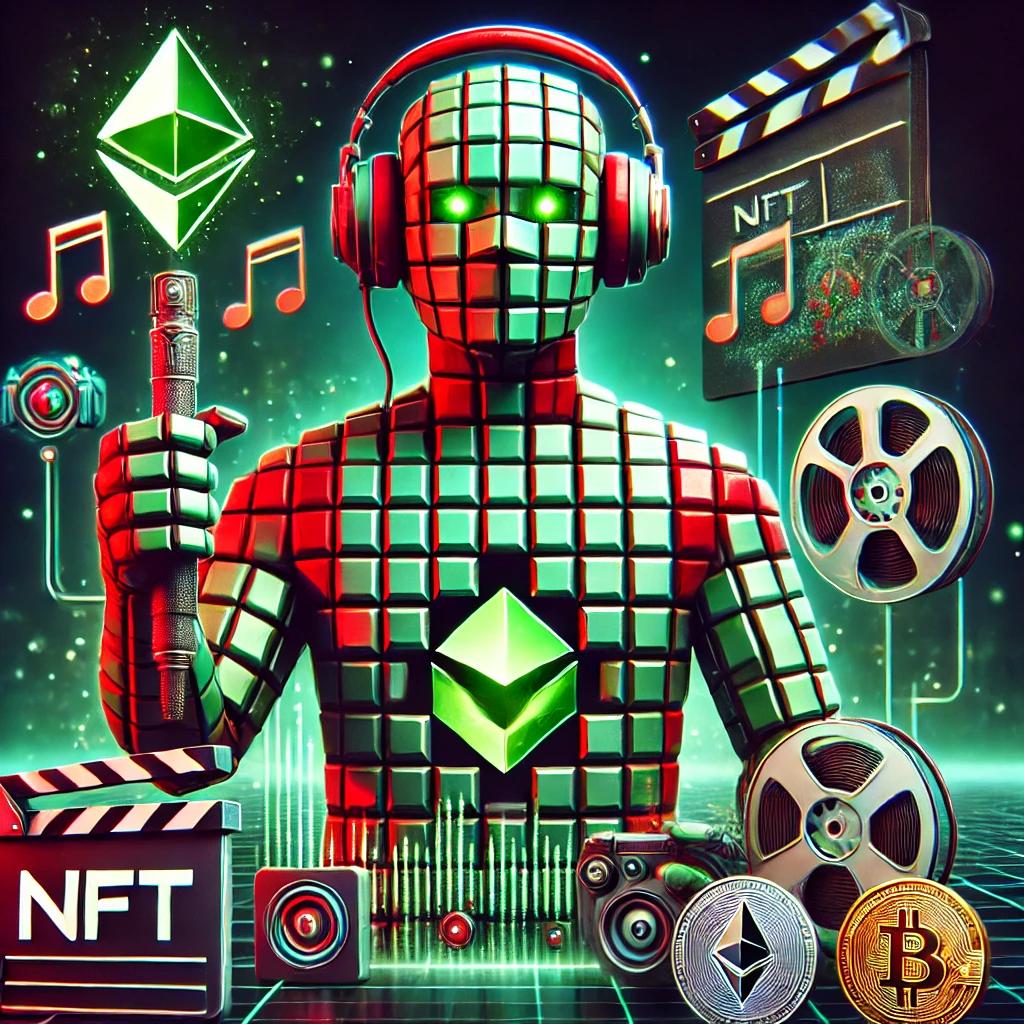Tokenized Economies: How Crypto Is Revolutionizing Ownership in Gaming, Music, and Film

Tokenized Economies: Turning Digital Trinkets into Real Assets
You’ve been grinding your way through an RPG for weeks—maybe months. Finally, you’ve earned that legendary sword. Back in the day, that sword would’ve stayed trapped in the game. Cool to look at? Sure. But useful outside the game? Not a chance. Now, thanks to blockchain, that sword is yours. Not just in-game, but really yours.
Take poker sites that accept Bitcoin. They’ve revolutionized online gaming transactions, turning what used to be a slow and cumbersome process—think wire transfers or delayed payments—into something seamless. Players can now enjoy faster payouts, lower fees, and enhanced privacy, all while avoiding the red tape of traditional banking systems.
This isn’t just some nerdy add-on; it’s flipping gaming economies upside down. Digital items—stuff we used to brag about and then forget—suddenly have real-world value. Don’t need that rare skin anymore? Sell it to someone who does. Want an item someone else owns? Trade them for it. It’s like gaming meets eBay, but faster—and a lot more fun.
Regulations, Energy, and Accessibility
And then there’s the whole regulatory minefield. It’s like playing Monopoly where every country has its own rules—and no one’s bothered to hand you the right instruction booklet. A trade that’s totally aboveboard in one place might be straight-up illegal just a short flight away. For investors, it’s a logistical nightmare. For businesses? Even worse. You’re constantly tiptoeing, hoping you don’t accidentally step into something you can’t get out of.
And let’s not forget the environmental baggage. Every time someone mines Bitcoin, the energy consumption spikes—like leaving a hundred thousand lightbulbs burning 24/7. Critics aren’t wrong when they say this flies in the face of global efforts to go green. It’s a tough pill to swallow for an industry positioning itself as the future.
Even for those genuinely interested, the learning curve can be brutal. Crypto wallets, private keys, blockchain protocols—just figuring out where to start can feel like cramming for a final exam on a subject you didn’t sign up for. For many, it’s easier to just stick with the familiar than dive into this complicated, jargon-heavy world.
Unlocking New Possibilities
The fusion of NFTs and cryptocurrency is reshaping how we experience and interact with entertainment. From exclusive digital collectibles to global accessibility, these innovations are empowering creators, fans, and gamers to engage with content in revolutionary ways. Here's how crypto is driving change across the industry.
Here are some ways crypto is reshaping entertainment:
- NFTs provide unique digital ownership, offering exclusive access to items like special edition albums or unreleased tracks.
- Crypto enables global accessibility, removing barriers for those without traditional banking systems.
- Gamers and creators can truly own digital assets, revolutionizing interactions with virtual economies.
- The entertainment industry is leveraging crypto for innovative experiences, from collectible NFT tickets to fan-driven project funding.
The possibilities for crypto in entertainment? They’re massive. Picture gaming worlds where every item you’ve earned—whether it’s a rare sword or a custom skin—is actually yours. Not “yours until the game changes or the servers go down,” but really yours, forever. That kind of ownership changes how players interact with digital economies.
And it’s not just games. Think about concerts or festivals where NFT tickets offer more than just entry. Maybe they unlock behind-the-scenes access or exclusive content, or even become collectibles themselves. A ticket isn’t just a pass to the show anymore; it’s an experience that keeps on giving.
NFTs and Crypto's Expanding Reach in Entertainment
NFTs—whether you love them, hate them, or don’t fully get them—are changing the way we think about ownership. At their core, they’re a digital certificate saying, “Hey, this is one-of-a-kind, and it’s yours.”
It’s not just a pass; it’s a memory you can actually own. Instead of just streaming their latest album, you snag an NFT tied to it—maybe a special edition cover or an unreleased track, something only a handful of people will ever own
Crypto’s real superpower? Accessibility. In parts of the world where banks are unreliable—or non-existent—crypto steps in. No bank account? No problem. As long as you’ve got an internet connection, you can join the global economy. For millions of people, crypto isn’t just a neat idea—it’s a real lifeline.
How Crypto Is Changing Music and Film
Musicians, for example, can skip the record labels altogether. They can sell albums directly to fans, getting paid in Bitcoin or Ethereum. No delays. No huge cuts going to someone else. Fans get exclusive content, and artists keep the cash. Everyone wins. Filmmakers are also getting in on the action. By tokenizing their projects, they let fans invest in their work. This isn’t just about donations—it’s ownership.
Let’s face it—crypto isn’t all glitter and gold. Sure, it’s packed with potential: innovation, decentralization, financial freedom. But the road to get there? It’s bumpy, to say the least. The first, and probably most obvious, challenge is volatility.
Prices move so fast it’s like trying to catch smoke. One day, that shiny NFT you snagged feels like a ticket to early retirement. By the next, it’s worth less than a cheap cup of gas station coffee. It’s not just unpredictable—it’s nerve-wracking. The kind of ride where you’re clutching the sides and wondering why you ever got on in the first place.
Crypto's Path Forward
Let’s not pretend it’s all smooth sailing. Volatility is still a challenge—prices can shift in the blink of an eye. Regulations remain murky at best and a headache at worst, varying wildly from one country to another. And scaling crypto to accommodate millions—or even billions—of users? That’s a mountain yet to be climbed.
Even so, these hurdles aren’t insurmountable. They’re part of the growing pains of a technology still finding its place in the world. As solutions emerge, crypto's transformative potential will continue to shape how we view ownership, creativity, and commerce—paving the way for a future full of innovation.